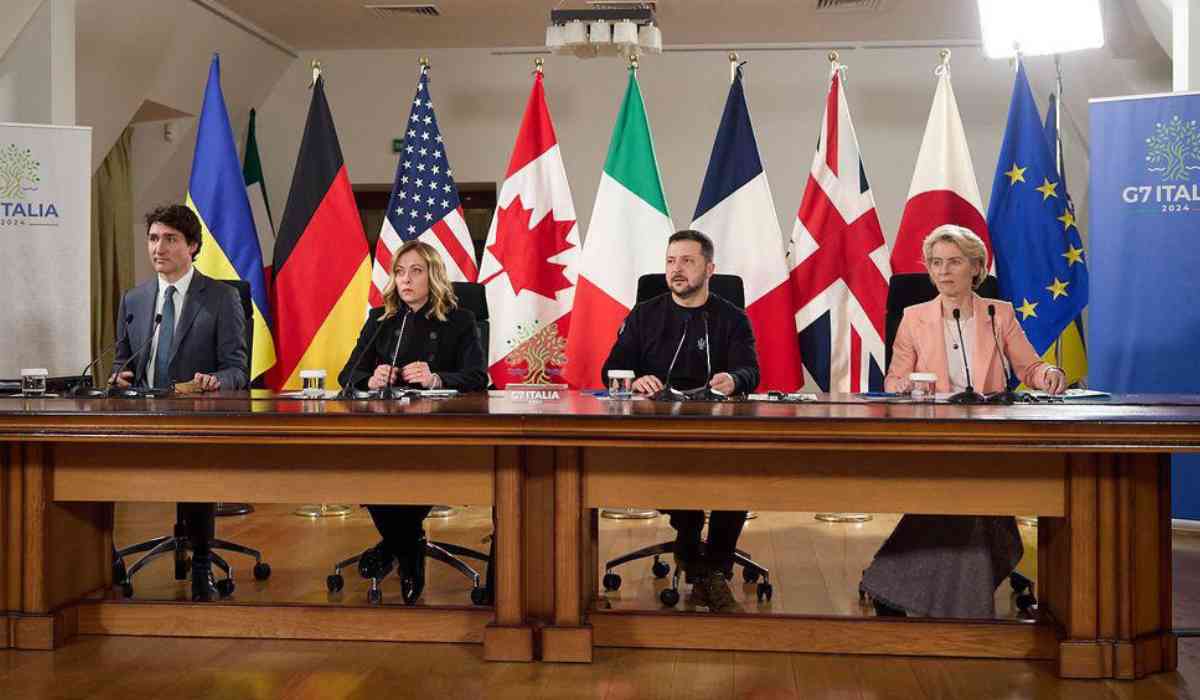The leaders of the Group of Seven pledged their support to Ukraine, while Western leaders visited Kyiv to show solidarity on the second anniversary of Russia's invasion.
On February 24, the G7 leaders convened a video conference with Ukrainian President Volodymyr Zelensky to mark the anniversary of Russia's "special military operation," which stands as the deadliest conflict in Europe since World War II. This was the first meeting of G7 leaders since Italy assumed the presidency for this year. The G7 consists of Britain, Canada, France, Germany, Italy, Japan, the United States, and the European Union.
During the virtual meeting, Ukrainian President Volodymyr Zelenskyy informed his G7 counterparts that he is confident that this year they will "not only implement every agreement already reached, but also add to our cooperation."
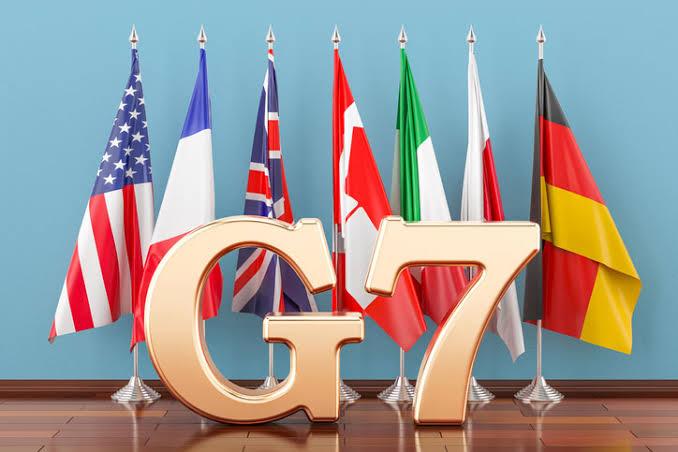
Zelenskiy emphasized the importance of safeguarding Ukrainian airspace and bolstering its military. "We are relying on you," he stated during the call, as reported on his website.
“As Ukraine enters the third year of this relentless war, its government and its people can count on the G7's support for as long as it takes," the leaders said in a statement issued after their video conference hosted by the group's rotating chair, Italy.
In their statement, the G7 leaders urged Russia to "completely and unconditionally withdraw its military forces" from Ukraine and pledged to adopt "new measures as necessary" to sanction Moscow.
They also announced plans to impose additional sanctions on companies and individuals in third countries that assist Russia in acquiring weapons and called for North Korea and Russia to "immediately cease" missile exports and procurement.
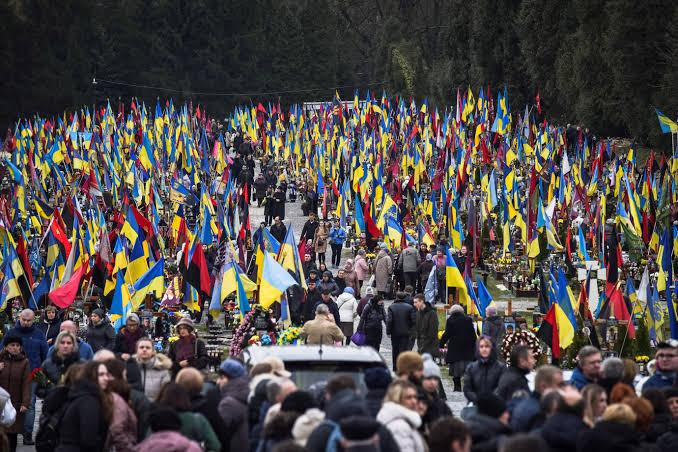
Photo: Reuters
Japanese Prime Minister Fumio Kishida emphasized the need for "unity" among G7 members to maintain sanctions on Russia and pursue lasting peace for Ukraine, while also condemning North Korea for its military assistance to Moscow, as reported by the Japanese Foreign Ministry.
"Russia's utilization of North Korean ballistic missiles in Ukraine is completely unacceptable," Kishida stated in the press release, highlighting that the transfer of North Korean arms to Russia violates U.N. Security Council resolutions.
Furthermore, they voiced concern about the transfer of weapons components to Russia from Chinese businesses.
Western Leaders visits Ukraine
To address concerns about declining Western engagement in the conflict, Italy's Giorgia Meloni and Canada's Justin Trudeau visited Kyiv early on Saturday, accompanied by European Commission President Ursula von der Leyen and Belgian Prime Minister Alexander De Croo.
"The message I want to convey today to... all the Ukrainian people is that they are not alone," Ms. Meloni remarked as she signed a 10-year defense pact with Mr. Zelensky.
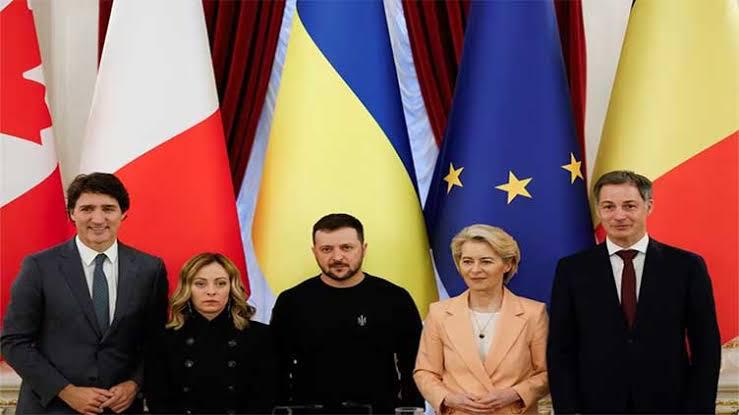
Trudeau signed a similar agreement and committed approximately $2.25 billion in financial and military assistance this year. "We will stand with Ukraine, providing whatever support is necessary, for as long as necessary," he affirmed.
Zelenskiy led the foreign leaders to Hostomel airport, the site of a fierce battle during the invasion, as Russia sought to fly in paratroopers to seize the capital Kyiv just a few kilometers away.
"Two years ago we met enemy troopers here with fire, and two years later, we are meeting our friends, our partners, here," Zelenskiy said in a televised speech delivered against a backdrop of wrecked aircraft.
"Any normal person wants the war to end. But none of us will allow our Ukraine to end," he added. "The word 'independent' will always stand next to the word 'Ukraine' in future history."
The security agreements made by Canada and Italy reflect similar pacts recently signed with France and Germany.
US Aid to Kyiv Blocked
However, the $61 billion in aid pledged by the U.S. President Joe Biden faces obstruction from Republicans in Congress, casting a significant obstacle over Kyiv's aspirations to counter the larger and better-equipped Russian military.
President Joe Biden's efforts are stymied by Republicans in Congress, which looms over Kyiv's aspirations to confront the considerably larger and better-equipped Russian military.
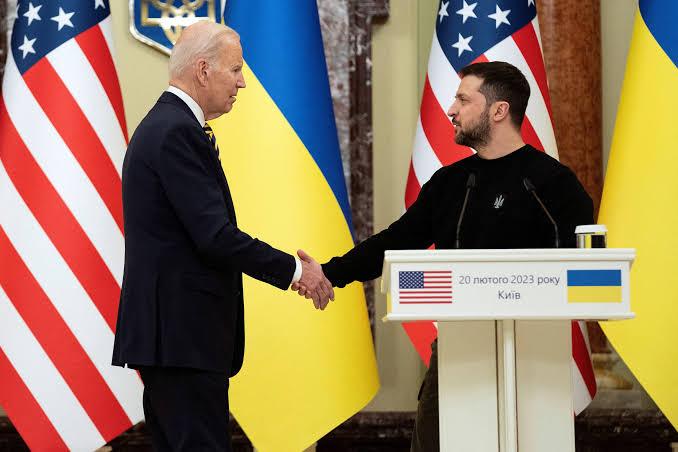
Biden was scheduled to participate in a video conference with fellow leaders of the Group of Seven (G7) major democracies on Saturday, with Zelenskiy invited to participate.
During the G7 video conference, Biden addressed Washington's ongoing backing for Ukraine and outlined measures the group can pursue to maintain pressure on Russia, as conveyed by a White House official.
In an effort to keep Western attention on Ukraine, Zelenskiy has cautioned that Putin's ambitions may extend beyond Ukraine's borders if he achieves success. Putin, however, rejects such assertions, framing the conflict as a broader confrontation with the United States, which he accuses of seeking to dismantle Russia.
Ukraine's Growing Vulnerability
Ukraine initially pushed back the Russian army but has recently faced setbacks in the east, with generals complaining of growing shortages of both arms and soldiers.
With no end in sight to the war that began on Feb. 24, 2022, Ukraine is facing concerns about waning Western support, particularly as additional aid from the United States stalls amid political wrangling.
For the second consecutive night, Russian drones targeted the port of Odesa, striking a residential building and resulting in one fatality, as reported by the regional governor. In Dnipro, another Russian drone struck an apartment building, leading to a rescue operation that revealed two casualties.
Meanwhile, as reported that Ukrainian drones ignited a fire at a Russian steel plant, identified by a Russian official as one located in Lipetsk, approximately 400 km (250 miles) from Ukraine, responsible for around 18% of Russian output.
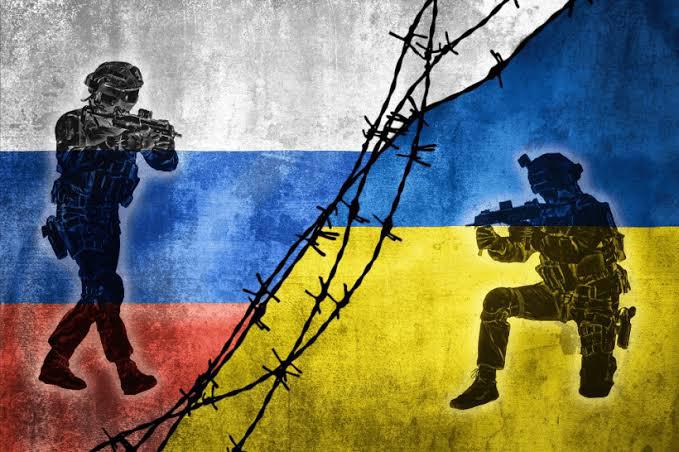
Photo: Epthinktank
Anniversary commemorations took place throughout Ukraine, including in the western city of Lviv, hundreds of kilometers away from the conflict zone. Grieving women shed tears as a priest conducted a prayer at a cemetery adorned with blue and yellow Ukrainian flags, each representing the loss of a soldier.
The initial shock of the invasion has faded into familiarity and fatigue, as the world observed initial Russian gains followed by a notable Ukrainian counteroffensive in late 2022, which later evolved into grinding trench warfare.
Ukraine finds itself in a more precarious position, with villages, towns, and cities razed, troops exhausted, and Russian missiles and drone strikes occurring almost daily. This month, Russia achieved its most significant victory in nine months by capturing the eastern town of Avdiivka, putting an end to months of deadly urban combat.
Yet Zelenskiy remained defiant. "I am convinced that victory awaits us," he told diplomats in Kyiv this week in an emotional address. "In particular, thanks to unity and your support."
According to a recent World Bank study, the task of rebuilding Ukraine's economy could require nearly $500 billion. Additionally, two million housing units have been damaged or destroyed, and almost 6 million people remain abroad following the invasion.
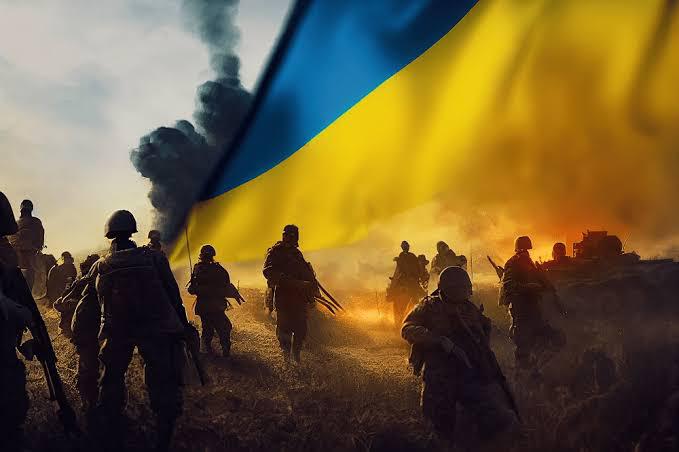
Photo: Epthinktank
In addition to seeking financial assistance and weaponry, Zelenskiy is advocating for legislation that would enable Ukraine to mobilise up to half a million additional troops – a move some economists warn could potentially cripple the economy.
Situation in Russia
Despite facing unprecedented sanctions, Russia's finances have remained resilient. While natural gas exports have declined, sales of oil have remained steady, largely due to purchases from India and China. Furthermore, the economy has benefited from significant defence spending.
Russia has also brutally suppressed dissent regarding the war. On February 16, Alexei Navalny, Putin's most prominent domestic adversary, died suddenly under unexplained circumstances in an Arctic penal colony where he was serving multiple sentences totaling over 30 years.
With a larger population to replenish its army and a bigger military budget, Russia may lean towards a prolonged war, despite facing significant costs from sanctions and an increasing reliance on China.
(Inputs from Agencies)
©️ Copyright 2024. All Rights Reserved Powered by Vygr Media

